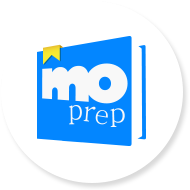Your Brain on Books: Does reading for fun make you smarter?
Do you read for fun? Quite a loaded question to ask most high schoolers, though it’s been recently found that their answer is likely representative of their verbal ability. Though we tend to hold in high esteem the kids picking up Hemingway or Faulkner, what students are reading may actually be less important than why they’re reading it.
A study completed in March of 2021 found that students who self-reported reading for pleasure performed much better than peers on the English Language Skills test, which was adopted directly from the SAT English/Writing sections. While it may not be a surprise to many that avid readers have more advanced vocabulary skills than your average student, it was an interesting find that many of these readers expressed consuming mainly young adult fiction as opposed to high literature.
——
“I liken it to research that says chocolate is good for you: the guilty pleasure of reading fiction is associated with positive cognitive benefits and verbal outcomes.”
Sandra Martin-Chang, Read Purely for Fun and Grow Your Language Skills
——
Reading for fun - any reading for fun - increases reading comprehension through exposure. When you enjoy what you’re reading, you will put in the extra effort to figure out the meaning of new words or phrases that you may not have to do if you’re only reading to answer a few questions for or summarize a chapter for homework. In fact, being pressured to read high-level novels or nonfiction often resulted in students expressing disinterest in reading for fun and lower scores on the SAT English/Writing test.
If you’re concerned that your child is already behind in reading comprehension, or that they may not be getting the fun part of reading in school, directing them towards books or articles on topics that they’re interested in is going to be the best route forward for their motivation to learn. Reading comprehension is a foundational skill that takes time to build, so framing reading as a fun pastime as opposed to a mandatory task will be imperative in closing the learning gap in comprehension during a year where students were estimated to have fallen 30% behind expected growth in reading.
